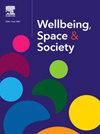“Cold turkey meds again”: Access to community HIV/AIDS services during public health emergencies
IF 2.2
Q2 GEOGRAPHY
引用次数: 0
Abstract
This paper works to explore the experiences of people living with HIV (PLWH) in relation to the closure of AIDS Service Organizations (ASOs) in Ontario, Canada, during the COVID-19 pandemic and offers recommendations on how to ensure a continuum of care for PLWH during public health emergencies like COVID-19. Semi-structured in-depth interviews were conducted with PLWH (n = 8) and ASO service providers (n = 8). Participants discussed their experiences with HIV services throughout the pandemic. Of the PLWH interviewed, individuals shared experiences of worsening mental health outcomes, difficulties accessing resources, disruption in medical care, and increased feelings of isolation. ASO service providers identified changes in their functions, increased barriers in service provision, and staff fatigue as challenges to their work. The results of this study demonstrate the need for reimagining HIV/AIDS and other service provisions during pandemics to ensure that resources remain accessible for PLWH and other marginalized populations. Essential ASO services to maintain a continuum of care during pandemic circumstances include prioritizing mental health supports, regular access to nutritious food, clothing, and financial support, and consistent check-ins between clients and service providers.
“突然停止用药”:在突发公共卫生事件期间获得社区艾滋病毒/艾滋病服务
本文旨在探讨在2019冠状病毒病大流行期间,加拿大安大略省艾滋病服务机构(ASOs)关闭对艾滋病毒感染者(PLWH)的影响,并就如何在COVID-19等突发公共卫生事件期间确保对PLWH的持续护理提出建议。对PLWH (n = 8)和ASO服务提供商(n = 8)进行了半结构化的深度访谈。与会者讨论了他们在整个大流行期间提供艾滋病毒服务的经验。在接受采访的PLWH中,个人分享了心理健康结果恶化、难以获得资源、医疗服务中断以及孤独感增加的经历。ASO服务提供商发现,他们的职能发生了变化,服务提供的障碍增加,员工疲劳是他们工作面临的挑战。这项研究的结果表明,有必要在大流行期间重新设想艾滋病毒/艾滋病和其他服务的提供,以确保公共卫生组织和其他边缘化人群仍然可以获得资源。在大流行情况下维持持续护理的基本ASO服务包括:优先提供精神卫生支持,定期获得营养食品、衣物和财政支持,以及客户和服务提供者之间的一致登记。
本文章由计算机程序翻译,如有差异,请以英文原文为准。
求助全文
约1分钟内获得全文
求助全文
来源期刊

Wellbeing Space and Society
Social Sciences-Social Sciences (miscellaneous)
CiteScore
2.70
自引率
0.00%
发文量
46
审稿时长
124 days
 求助内容:
求助内容: 应助结果提醒方式:
应助结果提醒方式:


